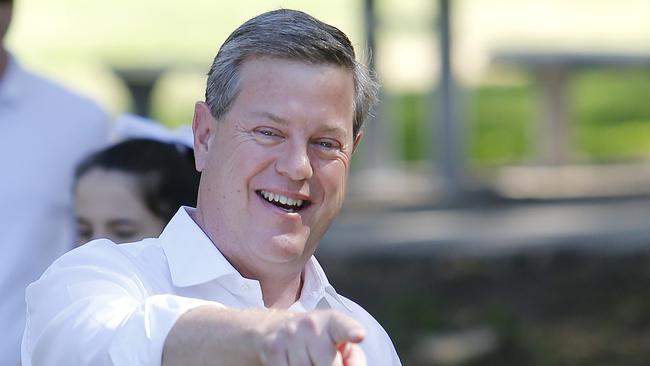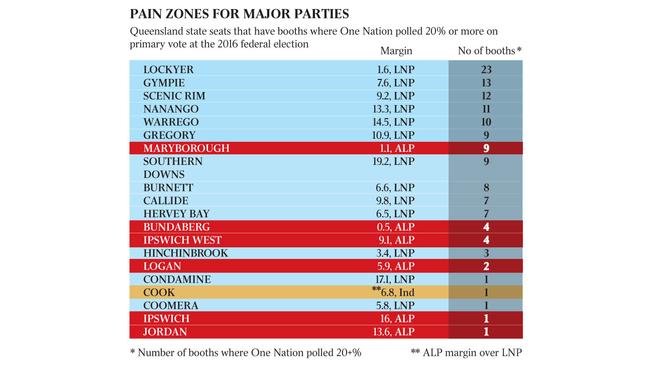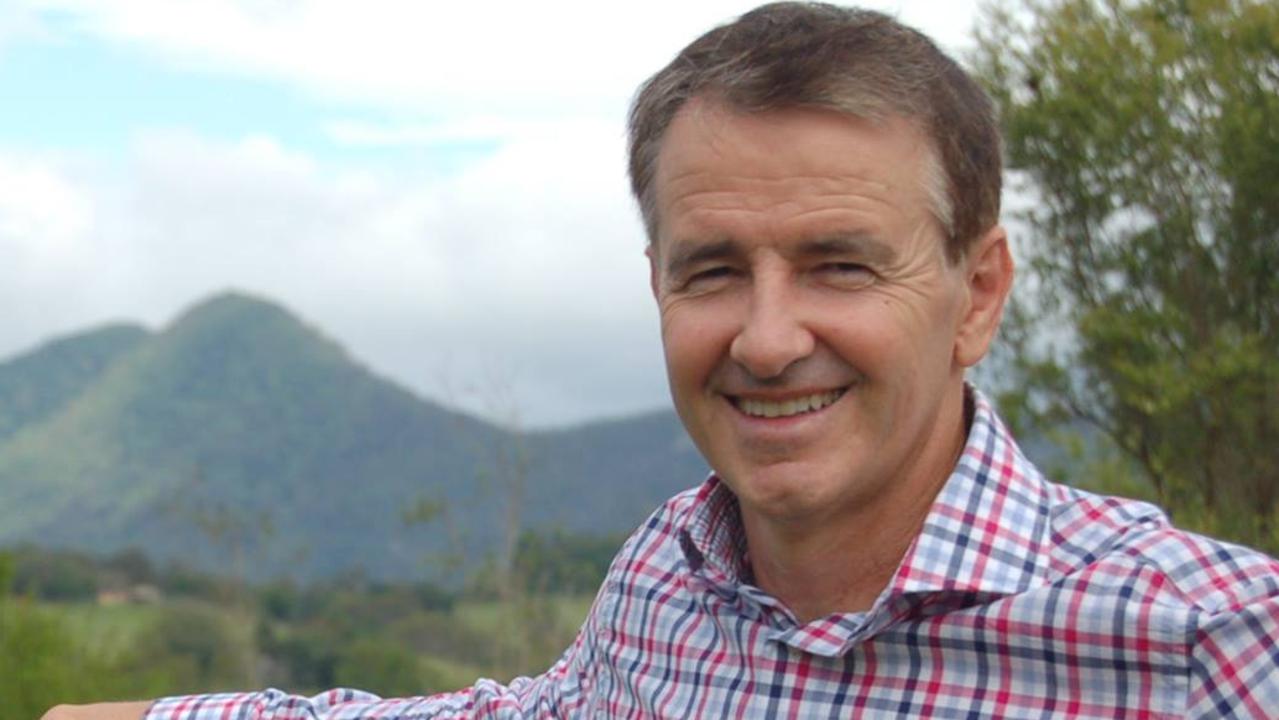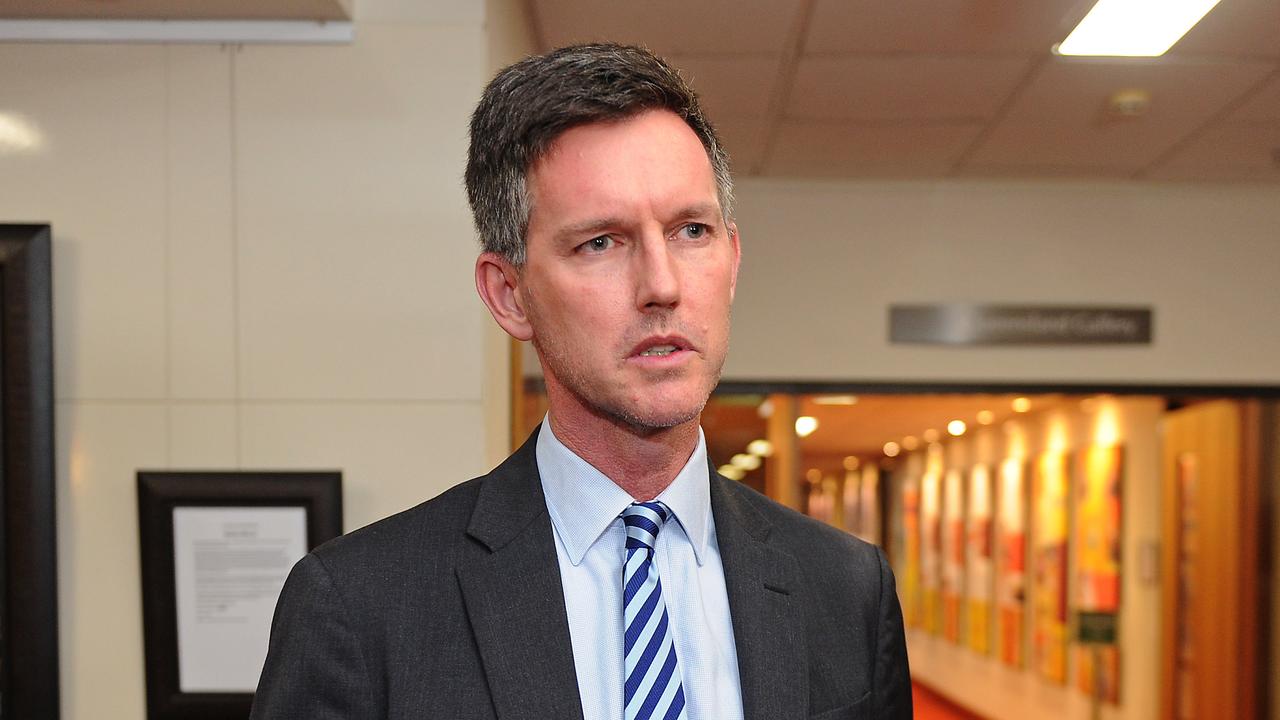Assets sales rejected as parties gear for power struggle
Rising power prices and energy security will be a key policy battleground during the Queensland election campaign.

Rising power prices and energy security will be a key policy battleground during the 28-day Queensland election campaign, after both major parties ruled out privatisation and forced public service redundancies.
Labor and the Liberal National Party opposition have each rejected asset sales as a potential solution to the state’s escalating debt and infrastructure funding needs, after both parties were punished at the ballot box for previous privatisation agendas. That leaves their approach to power generation and lowering electricity prices as the major policy difference between the two parties, with unemployment, law and order, and infrastructure to be other flashpoints.
Annastacia Palaszczuk’s Labor government backs a 50 per cent by 2030 renewable energy target, but has not yet named which of three expert-recommended pathways it will follow to achieve its goal.
Energy Minister Mark Bailey recently boasted that there were 20 renewable projects worth $3.4 billion, with a generation capacity of 1800 megawatts, committed to or under construction in the state.
The Tim Nicholls-led LNP however, has described the 50 per cent target as “crazy” and is instead pushing for Queensland to fall in line with the federal Coalition’s 23.5 per cent by 2020 goal — with no plan for beyond that date.
And while Ms Palaszczuk has previously stated that there was no need for a new coal-fired power station in north Queensland, or anywhere else in the state, Mr Nicholls has promised to fast-track government approvals for a high-efficiency, low-emission privately built coal-fired power station in the region.
Mr Nicholls says at least two companies have approached him since he made the policy announcement to express interest in building such a facility, but will not name them.
There is also likely to be continued blame-throwing between the parties about who has overseen the steepest power price rises. But in the past week, Labor has moved to neutralise this potent attack from the LNP by promising all Queensland households a $50-a-year rebate for the next two years off their power bills. And the ALP has threatened power retailers to sign up to an “energy pledge” to promise to pass on the savings — plus more — or it would re-establish a government-owned energy retailer in southeast Queensland.

Labor claims Queenslanders were subjected to 43 per cent increases in power prices during the Newman LNP government, while the LNP alleges wholesale power prices have spiked 60 per cent under the Palaszczuk regime.
However, earlier this year, the Palaszczuk government was forced to direct state-owned power generator Stanwell to make fewer profits to put downward pressure on prices, after it and other state-owned electricity generators poured $378 million in dividends into state coffers after a very hot summer. Labor spruiked the direction to Stanwell as proof it made the right decision to keep its power assets in state hands.
Labor’s major infrastructure project is the proposed $5.4bn Cross River Rail, a train tunnel under the Brisbane River designed to reduce congestion and ease pressure on the capital’s public transport system. While the LNP says it backs some form of extra river crossing, it has criticised the CRR and has not said whether it would go ahead under an LNP government. The opposition is expected to announce plans to build new roads, bridges and dams during the campaign.
Pauline Hanson’s resurgent One Nation party, the wildcard which could end up holding the balance of power, has also ruled out asset sales, believes the government should build its own coal-fired power station in north Queensland, and wants to block the opening of new coal-seam gas reserves in the state.
One Nation and the LNP also oppose Labor’s proposed tightening of tree-clearing laws, which would include a reinstatement of a ban on broad-scale clearing
Labor is expected to come under fire in inner-Brisbane seats for supporting the planned Adani coalmine in central Queensland, but Labor’s initial reluctance to back the project may hurt it in marginal regional electorates.



